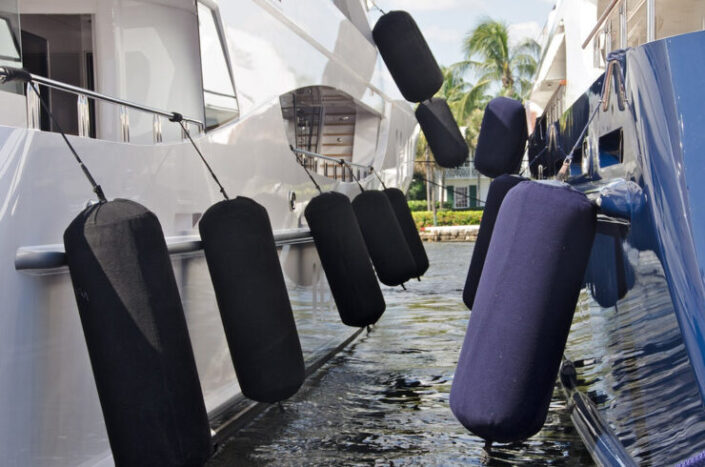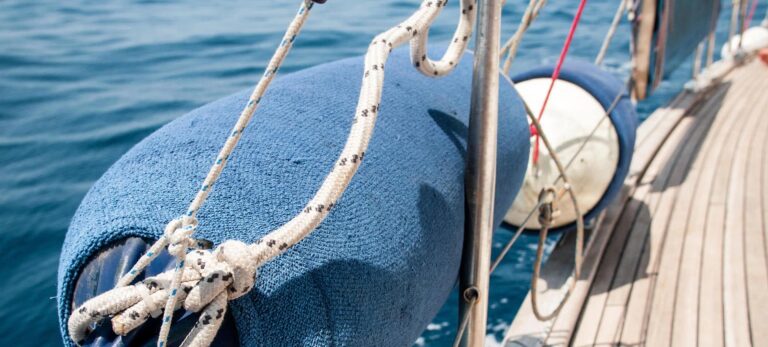If youre looking to take your boat-building skills to the next level, then mastering the art of Fender selection is a must! The right set of fenders can give any vessel that extra layer of protection and style. From choosing the size and shape to finding the perfect color, selecting quality fenders for your boat should be an exciting journey.
With so many options available on the market today, it’s important to do some research and make sure you get exactly what you need for optimal safety and efficiency. Read on as we guide you through all aspects of picking out proper fenders so that when it comes time to float your boat, there won’t be anything standing in its way!
Understanding the Basics of Fender Selection
When selecting the perfect fender for your boat, it is important to consider both its function and aesthetic. Functionally, fenders should be large enough to provide a protective barrier between your boat and other objects in the water; aesthetically, they should complement the style of your vessel while adding an extra element of flair.
One key factor when choosing a fender is size: too small and it won’t do its job effectively; too large and you risk detracting from the overall look of your boat. In addition to size, material is also an important consideration – rubber offers superior buoyancy but doesn’t always blend in with all boats whereas vinyl can match any design scheme but tends not to last as long.
Finally, color plays a role in matching or contrasting with existing elements on board, so pick wisely! With these tips in mind, you will soon have a well-chosen set of fenders that keep both form and function top of mind.
Choosing the Right Size and Type of Fenders for Your Vessel

When it comes to choosing the right size and type of fenders for your vessel, many factors need to be taken into consideration. Size is an important factor, as a fender needs to match the size of the vessel it is protecting.
Fenders come in various sizes, so you should take measurements before making a purchase. Additionally, some vessels will require multiple fenders depending on their shape or length.
In addition to size, type also matters when selecting a suitable fender for your boat. Inflatable models provide additional protection against impacts while foam-filled versions offer superior buoyancy and durability.
Some even feature solar panels that allow them to recharge during daylight hours without human intervention – perfect for long journeys at sea! Ultimately the choice between inflatable or foam-filled models depends on your own preferences and budget considerations. Finally, other factors such as material composition can influence how well-suited a particular model may be for your specific application or environmental conditions (e.g., saltwater).
For instance, certain materials like polyethylene may not hold up well in areas with significant wave action whereas more durable materials like PVC might fare better in these scenarios. Thus researching material options before purchasing is highly recommended if youre looking for long-lasting performance from your device(s).
Attaching, Adjusting, and Maintaining Your Boats Fendering System
Attaching, adjusting, and maintaining a fender system for your boat is an important process that should not be taken lightly. It is essential to properly secure the fendering system to achieve maximum protection against potential damage from docks or other boats.
Begin by using appropriate hardware such as screws and bolts to attach the fenders securely to your boat. Next, adjust the height of each fender with a simple tug on its rope line – this ensures they are correctly positioned along your hull.
Lastly, regularly inspect and clean all components of the fendering system so that it remains intact during any water activity. By following these steps, you can ensure that your vessel stays safe while out on the open water!
Tips for Finding Quality and Affordable Boat Fenders
When it comes to selecting quality and affordable boat fenders, there are a few key factors to consider. First, the size of your boat should be taken into account when determining what type of fender you need. A larger vessel will require a more robust product than a smaller one.
Additionally, research the material that is used in construction as some materials may provide greater protection from wear and tear or UV exposure than others. It’s also worth noting that opting for higher-quality products can help ensure your safety on the water.
Another factor to keep in mind is budget; while price should not be the sole determinant when buying boat fenders, you want to make sure that whatever option you choose fits within your financial means. To do this, shop around online and compare prices between different retailers before settling on one particular item or brand.
Also, look out for any special deals available that could save you money – but don’t sacrifice quality for cost! Finally, think about where you plan to store your fenders once they are purchased: if space is limited onboard then opt for an inflatable option which takes up less room; however, if storage isn’t an issue then a traditional style may suit better depending on personal preference and application requirements. By considering all these points beforehand, boaters can rest assured knowing their choice was well-informed and economical at the same time!
Conclusion
The selection of the appropriate fender for your boat is essential to ensure a safe and comfortable experience out on the water. From traditional air-filled rubber fenders to foam-filled and hydropneumatic options, there are many different styles available that can provide effective protection against collisions and other hazards.
Ultimately, by carefully considering size, shape, materials used, inflation levels, and installation points you can find the perfect option for your vessel. With expert advice from knowledgeable professionals such as those at Float Your Boat, mastering the art of hydropneumatic fender selection has never been easier.


